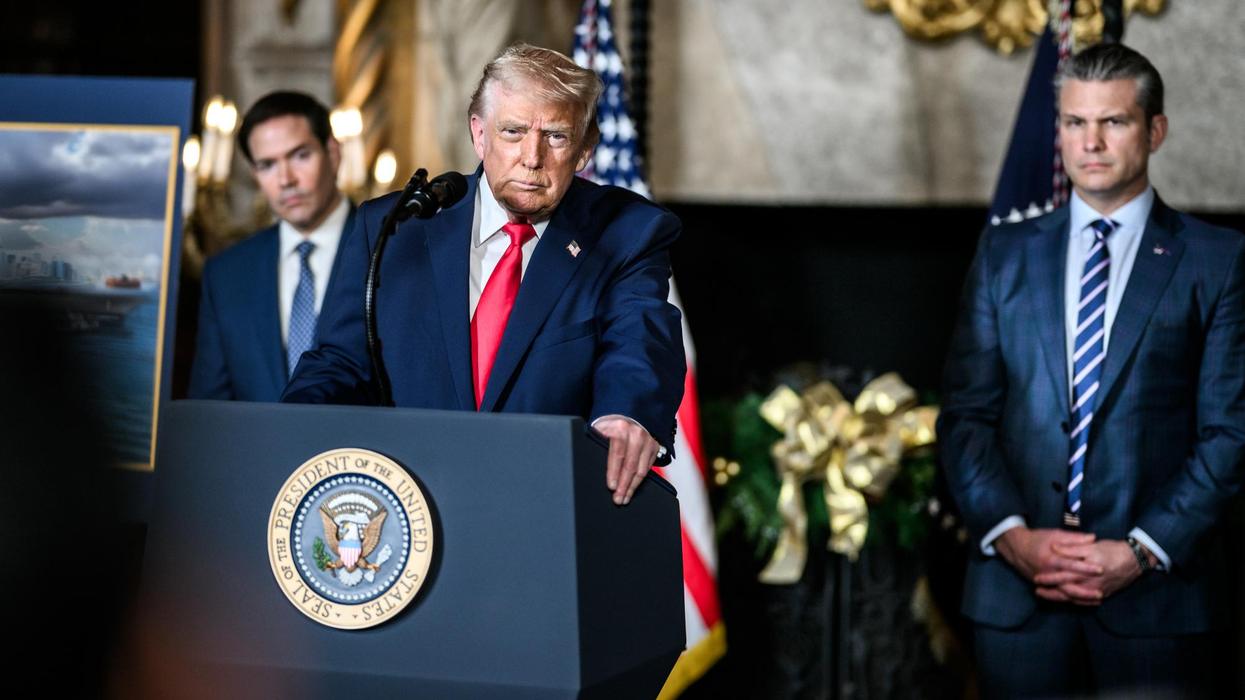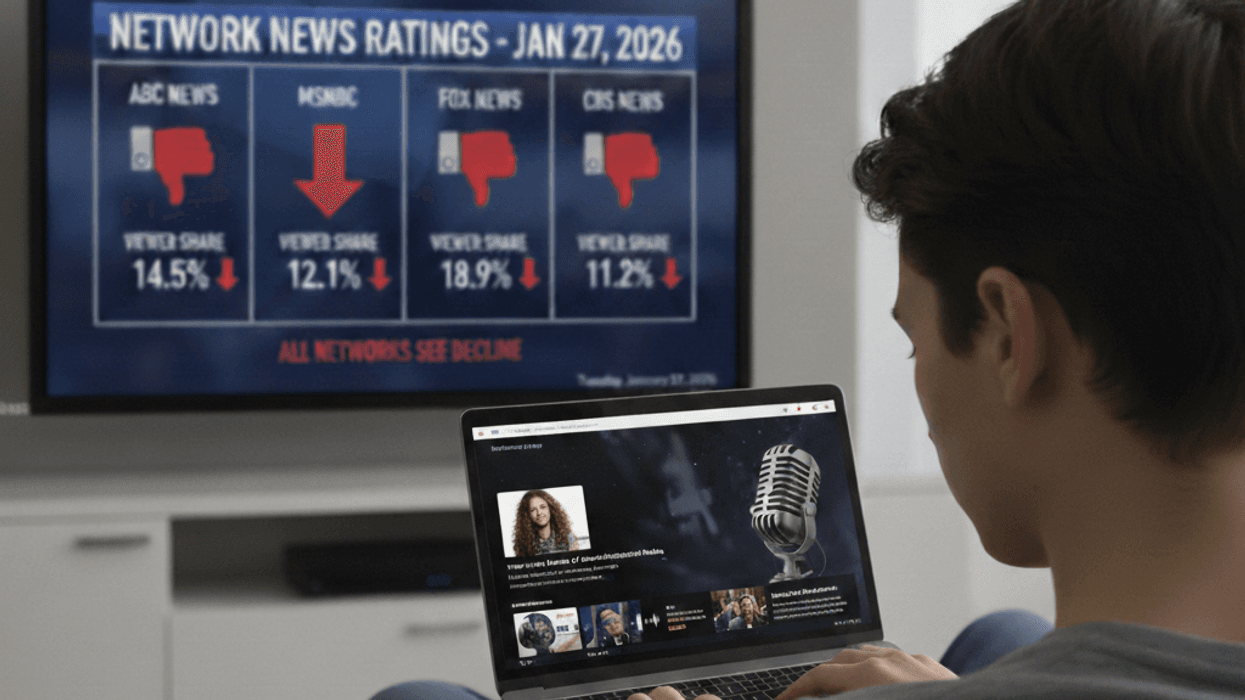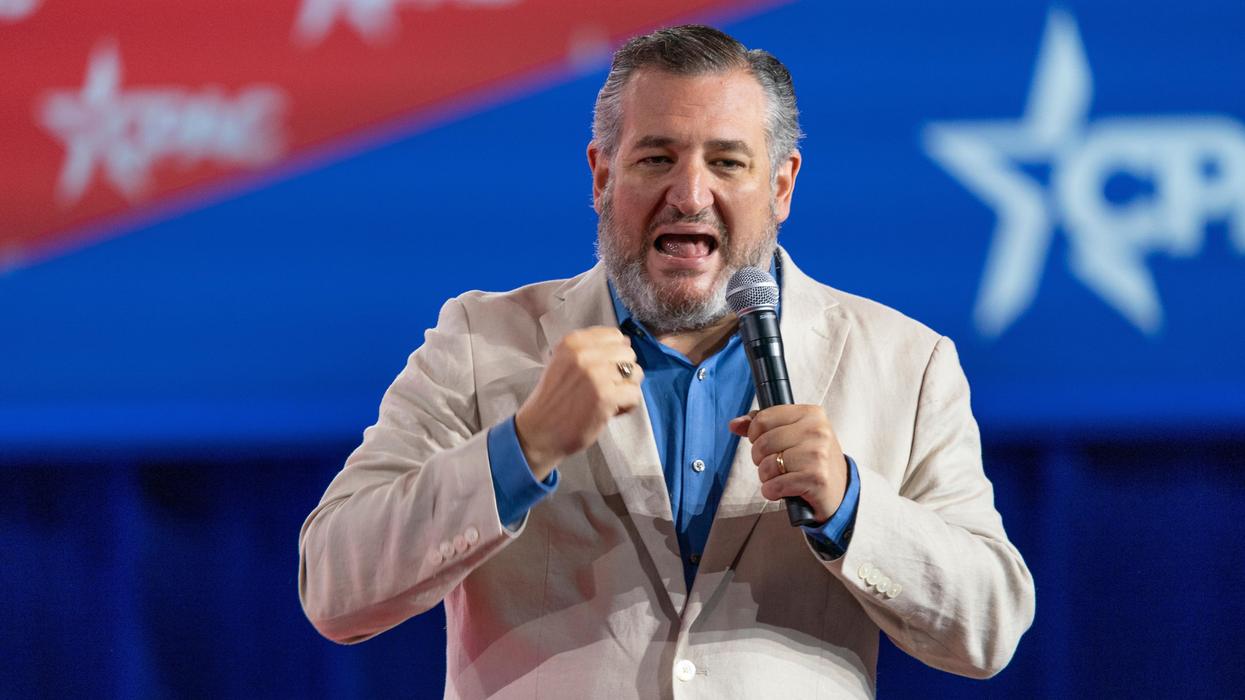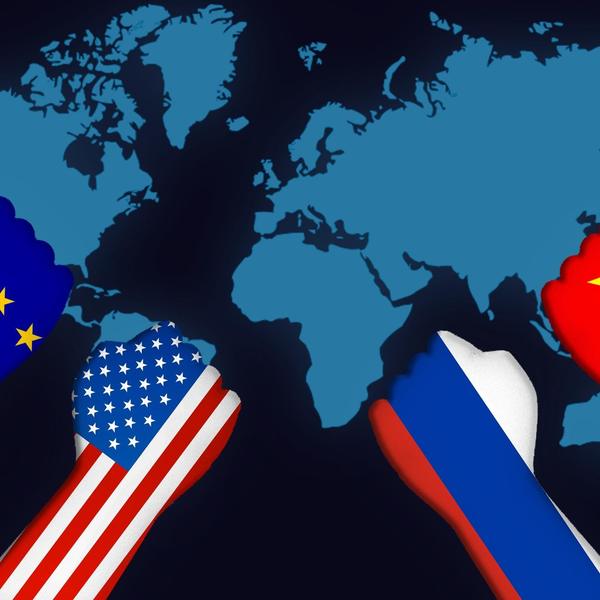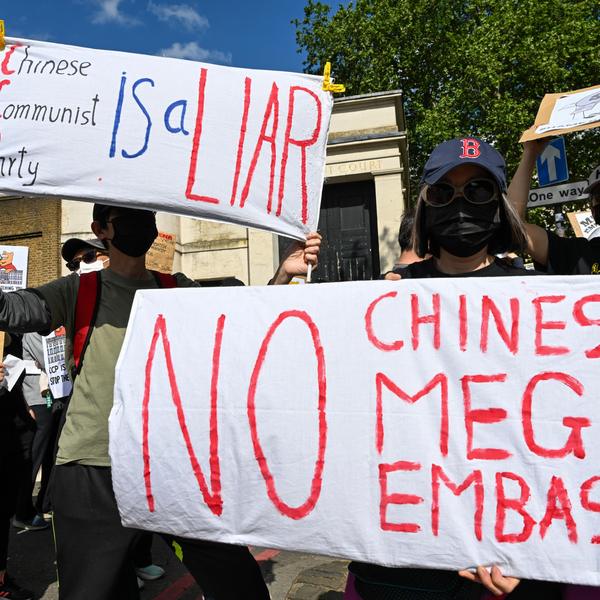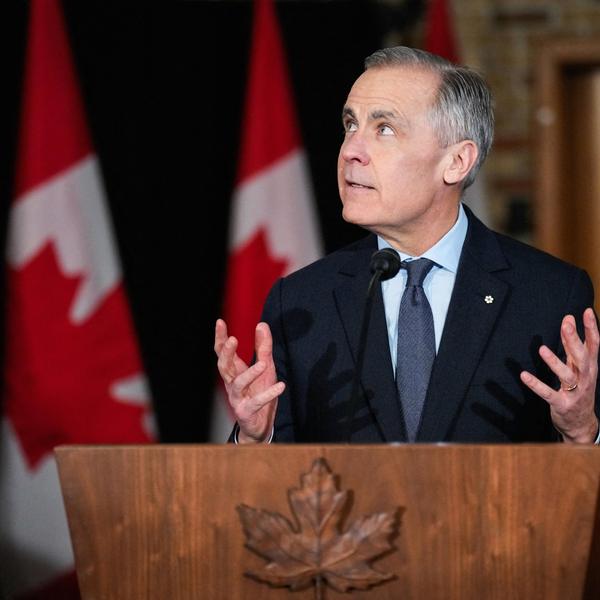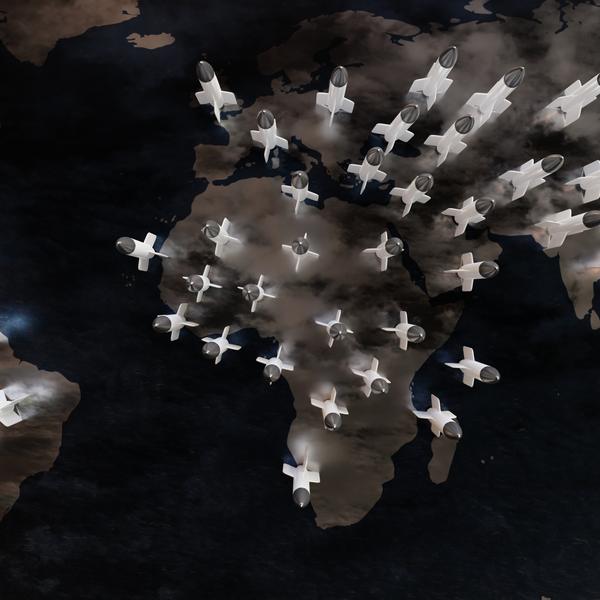In speech to the annual Munich Security Conference, President Biden emphasized that the United States had returned to its customary role as leader of NATO after four years of Trumpus interruptus. His stance is based on the assumption that the Western alliance was in fine shape before Donald Trump became president and adopted the abrasive “America First” policy that alienated the European allies.
Biden’s approach misses two key underlying problems. First, NATO was showing serious signs of strain years before Trump set foot in the Oval Office. Second, despite the prevailing assumption of the foreign policy establishment on this side of the Atlantic, the Europeans are not salivating to follow Washington wherever U.S. leaders might wish to go. Despite ardent professions of transatlantic solidarity by its advocates, NATO is a zombie alliance with an unclear purpose and a steadily decreasing degree of unity.
Intra-NATO tensions were worsening for nearly two decades before Trump took office. The financial burden-sharing issue was an especially prominent sore point with U.S. leaders who were weary of how the alliance’s European members continued to free-ride on America’s security efforts. Washington’s frustration grew in the years after the September 11 terrorist attacks. U.S. military spending nearly doubled during the following decade, whereas the already modest outlays of NATO’s European members continued the downward trajectory that began with the end of the Cold War.
In June 2011, departing Secretary of Defense Robert M. Gates issued a candid admonition to the alliance partners.
“The blunt reality is that there will be dwindling appetite and patience in the U.S. Congress, and in the American body politic writ large, to expend increasingly precious funds on behalf of nations that are apparently unwilling to devote the necessary resources... to be serious and capable partners in their own defense,” he said in an address to a think tank in Brussels.
At a meeting of NATO defense ministers in February 2014, Secretary of Defense Chuck Hagel warned his European counterparts that they must step up their commitment to the alliance or watch it become irrelevant. Declining European defense budgets, he emphasized, are “not sustainable. Our alliance can endure only as long as we are willing to fight for it and invest in it.” Rebalancing NATO’s “burden-sharing and capabilities,” Hagel stressed, “is mandatory — not elective.” His tone was firm: “America’s contributions in NATO remain starkly disproportionate, so adjustments in the U.S. defense budget cannot become an excuse for further cuts in European defense spending.”
Trump’s burden-sharing demands were more insistent and less diplomatic, but the basic message was similar. Equally significant, the European response to U.S. hectoring has been desultory, at best. Despite the official commitment that alliance members would spend a minimum of two percent of annual GDP on defense, only ten of NATO’s 30 countries have reached that level. Worse, several of NATO’s most important members, including Germany, Italy, and Spain have noticeably failed to do so. Indeed, Germany keeps postponing its fulfillment date — which now is set for 2031, a laughably distant point.
But NATO’s problems go well beyond the issue of burden-sharing, and once again, troubles were evident before Trump. Several members were already showing unmistakable signs of drifting toward domestic authoritarianism. The trend was most pronounced in Poland, Hungary, and Turkey, and matters have become worse in all three countries.
After Recep Tayyip Erdogan’s systematic crackdown following the July 2016 coup attempt, Turkey’s governance more closely resembles the political environment in Putin’s Russia than it does the Western democratic norm. The slide toward authoritarian rule shows no sign of reversal, however much Biden may intend to lecture the offending leaders about the need to abide by democratic values. Intra-alliance tensions on that issue are likely to grow worse, not better.
There are other strains, and they were on display in Munich.
“I listened to President Biden” and appreciated the list of “common challenges,” French President Emmanuel Macron responded in French on Friday. “But we have an agenda that is unique,” and won’t always require U.S. participation or leadership.
“We need more of Europe to deal with our neighborhood,” Macron said who talked about "strategic autonomy" in his own speech. “I think it is time for us to take much more of the burden for our own protection.”
The most serious problem is that the United States and its European partners no longer seem to be on the same page with respect to some important international issues. That fissure has become apparent regarding policy toward the People’s Republic of China.
Washington sought to gain approval for a collective statement of condemnation when Beijing imposed a national security law that greatly imperiled Hong Kong’s political autonomy. The lack of support from European capitals was striking. Only Britain (Hong Kong’s former colonial ruler) joined the United States in embracing a firm approach. Anxious not to become entangled in America’s escalating rivalry with China, European Union foreign ministers merely called for dialogue about Hong Kong.
Lest anyone assume that the lack of European cooperation was the result of hostility toward the Trump administration, Joe Biden received a rude awakening even before he entered the White House. In a speech on December 28, the president-elect tried to enlist the European allies in a common front to deal with China on a range of issues.
“As we compete with China and hold China’s government accountable for its abuses on trade, technology, human rights and other fronts, our position will be much stronger when we build coalitions of like-minded partners and allies,” he emphasized.
Just two days after the president-elect’s comments, the European Union signed a major investment deal with Beijing. RealityChek blogger Alan Tonelson contended that the EU’s action constituted a “punch in the mouth.” Indeed, negotiations had been going on for seven years, and there was no reason why EU leaders could not have held off and consulted with the Biden administration after it took office before taking final action. Their failure to do so indicated that the EU intends to chart its own course regarding economic relations with China based on an assessment of European interests, not U.S. policy preferences.
Biden does have a few European advocates for transatlantic unity in managing relations with Beijing. At the Munich conference, NATO Secretary-General Jens Stoltenberg called for Europe, Canada and the United States to uphold the “international rules-based order,” which he contended that both Russia and China were challenging. He then described Beijing's rising power as a defining issue for the alliance.
But most Europeans have little enthusiasm for joining the United States in confronting China. The risks associated with waging even a diplomatic feud with the PRC — to say nothing of a trade war or a military confrontation — would appear to most Europeans to outweigh any conceivable benefits. From the standpoint of European interests, discreet neutrality regarding relations between the United States and China is the prudent course.
That position accurately reflects European public opinion. Most Europeans want no part of a possible confrontation with China. When a September 2019 survey by the European Council on Foreign Relations asked, “Whose side should your country take in a conflict between the United States and China?” the results were emphatic against backing America. Overwhelming majorities in all countries surveyed favored neutrality — in most places, more than 70 percent.
Support for pursuing a confrontational policy toward Russia was only a little higher — even though mutual U.S.-European security interests should be far stronger in that case. When asked which side their country should support in a conflict between the United States and Russia, the majority of respondents in all 14 European Union countries surveyed said “neither.”
European governments have thus far been more responsive than their publics to Washington’s calls for an uncompromising policy toward Moscow. Both the European Union and the United States have just imposed new sanctions in response to the Putin government’s mistreatment of opposition leader Alexei Navalny and evidence of Russian cyber-hacking abuses. NATO also continues a steady buildup of military forces on Russia’s western border.
But one wonders how long the political elites in NATO’s European members can continue to pursue policies that lack strong public backing. There is even a serious question about how committed European populations are to the concept of collective defense. A 2015 Pew Research survey found that outright majorities in France, Italy, and Germany were opposed to fulfilling their country’s obligation to fulfill the Article 5 treaty pledge to consider an attack on any NATO member as an attack on all.
Two points are significant about that result. First, that obligation is the core of NATO’s purpose, so lack of public support in those key countries is especially damning. Second, the survey was conducted before Donald Trump even declared his candidacy for president, confirming that sagging European public support for NATO was already well underway.
It is highly improbable that Biden will be able to reverse the rot within NATO. Pretentious alliance summits will assuredly continue for years to come as though nothing is wrong, and the statements of transatlantic solidarity may become even more insistent and effusive than before. But such superficial measures will not inject life into an association that now has deep — and deepening — divisions on an array of crucial matters.


